Just in time for the opening of nominations on May 15, 2023 for the 2023 OE Awards for Excellence and in the theme of being inpsired by previous winners, we are sharing a conversation we recorded with Giovanni Zimotti who was recognized in 2022 with an OE Award in the Educator category.
As Director of Spanish Language Instruction at the University of Iowa, Giovanni has taken on applying and developing Open Educational Resources in the Spanish courses and has led the development of several open textbooks, two of which are focused on Spanish in professional fields (healthcare and education).
Listen in as Giovanni shares his journey from the Italian village of Cagnano Varano to Iowa City, how open education became his focus and mission, and more about his ideas on teaching with OER and applying virtual reality in language teaching.

Podcast: Play in new window | Download
Notes and Quotes for Episode 56
We have a pretty big Spanish program with around 800, 1000 students per semester and my goal for this program right now is to fully switch every single level to OER textbooks
Giovanni Zimotti
- 2022 OE Award for Excellence in the Educator Category (OE Global)
- Giovanni Zimotti, Ph.D., Director of Spanish Language Instruction (University of Iowa)
- Giovanni Zimotti (Personal website)
So there are many opportunities. First of all, you are not restricted to what the traditional publishers are offering. For example, when we started using the first textbook, there were some mistakes and there are always mistakes in [the] textbook. Either if it’s OER or a traditional publisher textbook.
But the good thing about OER, that if you find a mistake, another professor finds a mistake, you can fix it right away. You don’t have to wait for a second edition of the book coming in three years. Another opportunity for OER is that it can be localized to the student needs of your town, of your area.
Giovanni Zimotti on OER
- Maletín médico. Intermediate Spanish for Health Care Professionals (University of Iowa Pressbooks)
- Salón de clase. Intermediate Spanish for Education Professionals (University of Iowa Pressbooks)
Lately we have been working on one additional project about VR. There is a colleague of mine that is teaching Spanish Medical Interpreting. We’ve been recording a series of 360 videos of medical encounters. There is a patient, there is a medical provider, a doctor, a nurse, medical assistant, any of them, and then an interpreter.
So we record the situations with actors and then we put them on YouTube. It’s 360 videos and we use them in various way. We mute when the interpreter is talking, so the students can use them as practice . And we also use them as an assessment at the end of the semester. So students, they get either in the VR or if they have issue with VR, they can just watch it on YouTube. And they have to interpret what’s going on while the video’s playing.
Giovanni Zimotti on his VR projects
- Virtual Reality Training for Language Medical Interpreting (FLTMAG)
- Medical Imaging VR (YouTube playlist)
- Ready, Steady, Spain (Giovanni Zimotti)
- Virtual reality training: reducing social distance abroad and facilitating spanish second language acquisition (Giovanni Zimotti dissertation, University of Alabama)
There are benefits from using OER for example, students have access to the textbook from day one. They don’t have to wait until when they can actually buy it or when they’re financially clear. So some students are waiting until two or three weeks before they can buy a textbook. That’s gonna affect their grade. That’s gonna affect the way they learn because the first two or three weeks or plus are basically useless for them because they cannot read the book. The most affected people are gonna be the students that don’t have money to buy them. If you’re a rich kid, spending $300 for a textbook and those are like real prices, it’s okay. You’re not gonna pay it, you’re not gonna be affected by it. You’re still gonna be able to go to a restaurant and eat.
But for someone that doesn’t have the money or the resources, that’s gonna be really impactful for them when they have a free textbook instead of a textbook that is so expensive.
Giovanni Zimotti on benefits of OER
- OER Textbooks (Giovanni Zimotti web site)
- Greyled “The OER platform that thinks like you do” (Giovanni Zimotti’s new platform in development)
AI Magic for Podcasting?
Note: In our ongoing process of exploring new technologies, we tested a new AI powered podcast content creation tool called Castmagic— we uploaded the audio for this episode and it generated suggested podcast titles, highlights, key points, even text social media posts (see the full set of results).
All our summaries above are human written, but for a taste of what Castmagic generated from the audio for this episode:
On this episode of OEG Voices, we delve into the world of Open Educational Resources (OER) and the benefits they bring to language learning. Our guest speaker talks about their experience working on VR projects for medical interpretation and language immersion, as well as their passion for creating OER textbooks that are accessible to all. We explore the advantages of OER, such as localization and customization, and the challenges they face, such as lack of support for homework. Join us as we dive into the world of OER and the impact it has on language education.
Podcast introduction generated by Castmagic
At first it looks rather magical indeed that Castmagic could do all of this writing, summarizing, even, social media post writing, just from analyzing the audio content. We leave it to the reader/listeners to judge it’s value, for now, our content remains human produced!
Our open licensed music for this episode is a track called La paloma de la paz by Robo, licensed under a Attribution-Noncommercial-Share Alike 3.0 Spain License. Like most of our intro music, it is from the Free Music Archive (see our full FMA playlist).
The introduction was created with the OEG Voices Mixer featuring voices of Isla H-F, Ajita D, Charlie F, Lisa Y, Józefa F, Ewan M, Lori-Beth L, Alex E, Cynthia O, Clint L, Catherine C, Lorna C, and Vera K (learn how to add your voice to the mix).
This was another episode we used Descript for transcribing and editing audio that has greatly enhanced our ability to edit and transcribe our show.
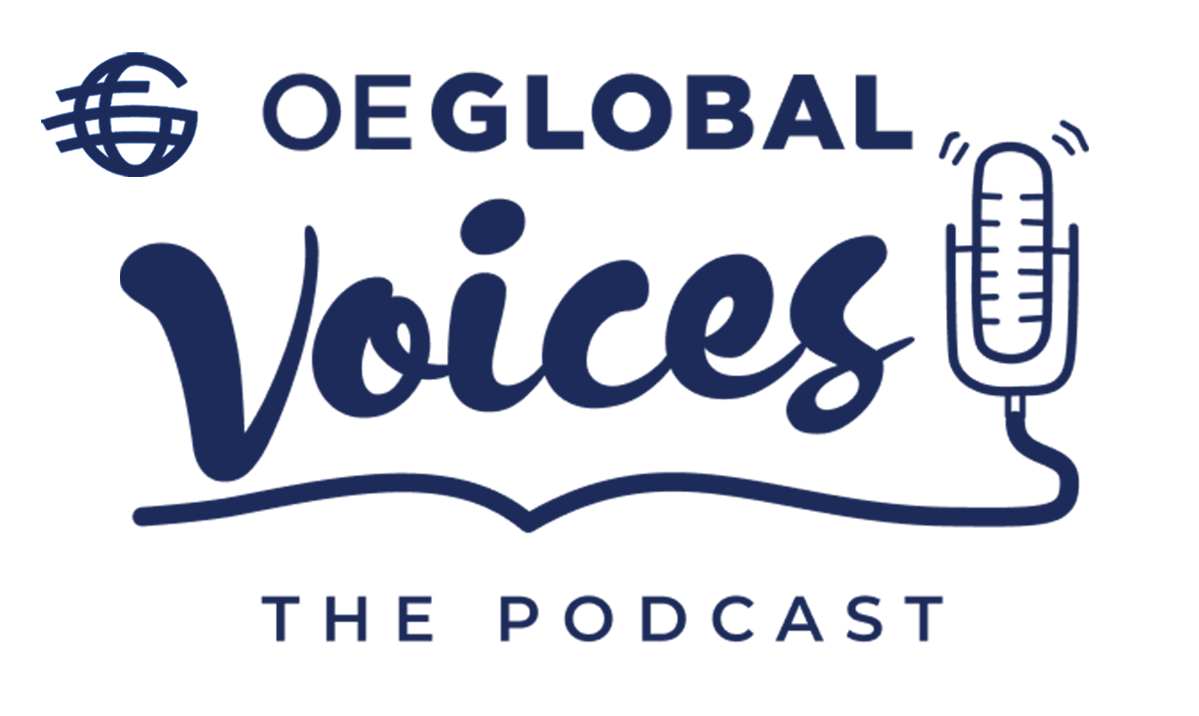
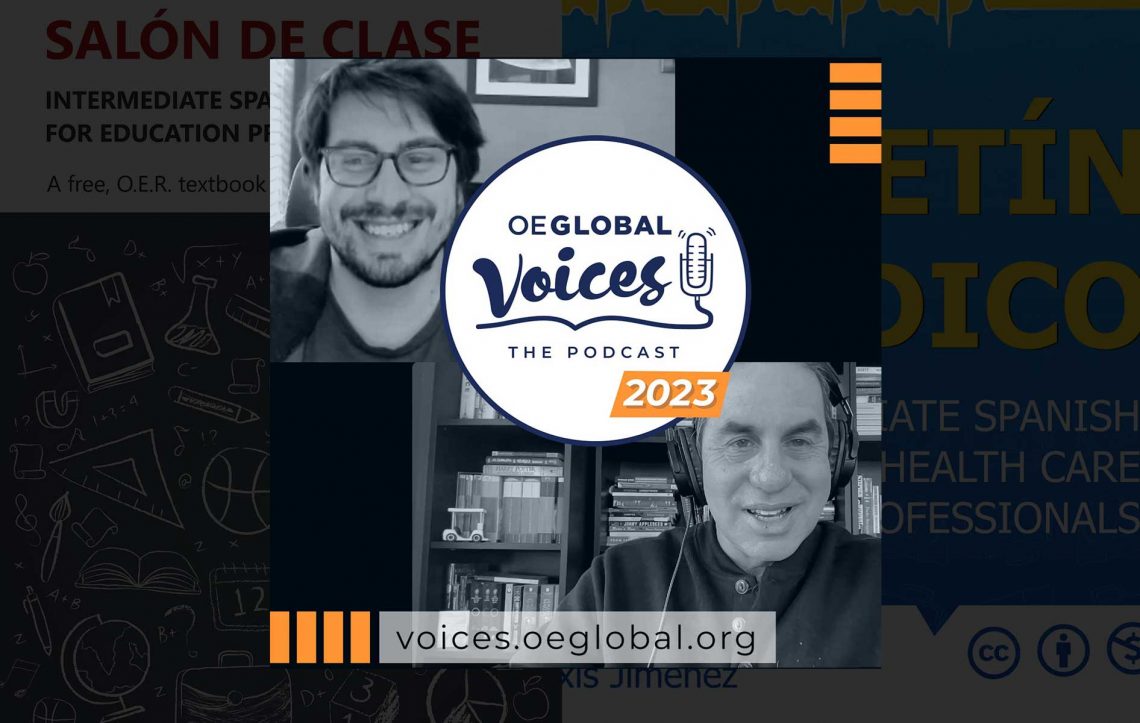
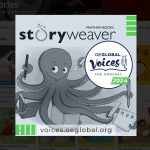
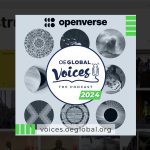



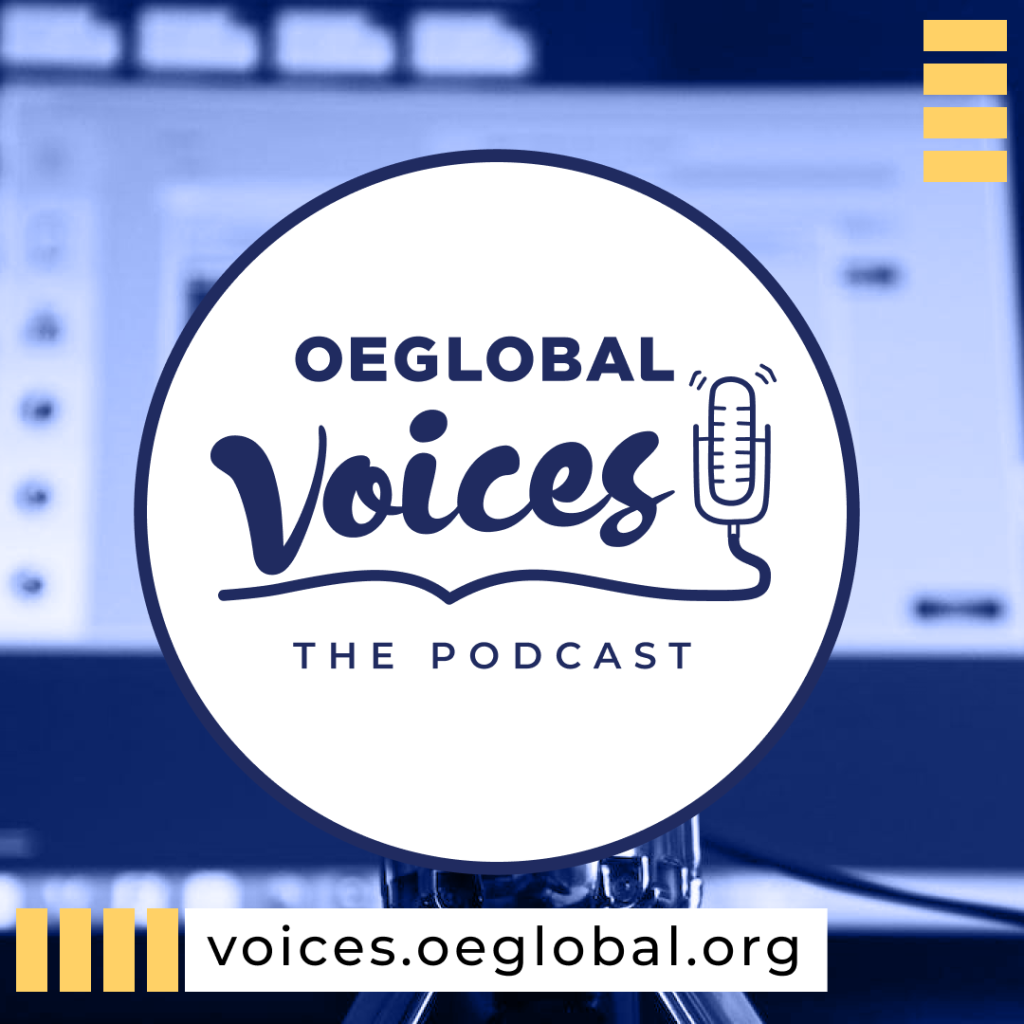

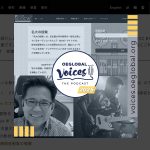





Just in time for the opening today for the 2023 OE Awards for Excellence. – listen to the voice of last year’s winner of the Educator Award, Giovanni Zimotti, and OER creator and advocate from the Spanish Languages department at the University of Iowa.
Be inspired by Giovanni and other previous winners of the Educator Award of Excellence as you ponder perhaps who you might nominate in the Educator Award category.
Also, note the mention of the Greyled OER platform Giovanni briefly mentioned, in a followup message he shared:
If this sounds interesting, you can request an invite from the site and let us know too below so we can maybe persuade Giovanni to provide us a demo.